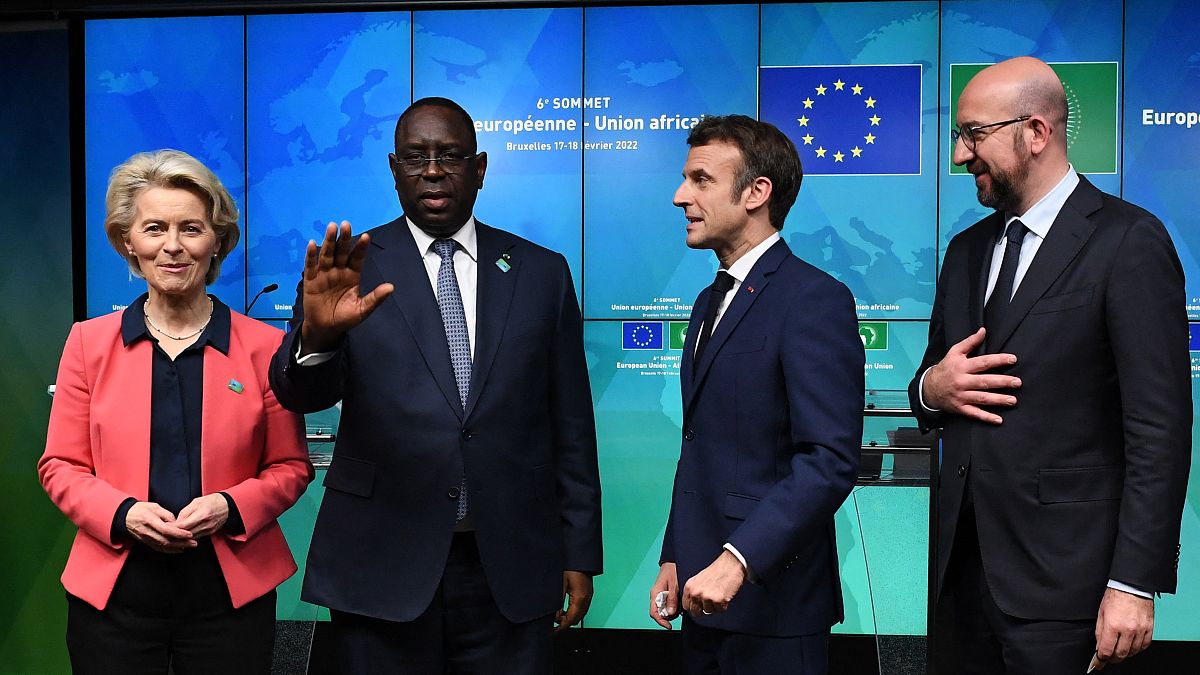The European Commission, Germany, France and Belgium will invest €40 million to help six African countries produce mRNA vaccines at scale.
The European Union has agreed to transfer mRNA technology to six African countries to help them produce African-made coronavirus vaccines at scale and bridge the inoculation gap with the West.
Messenger RNA is a novel and complex technique that teaches human cells how to make a protein that will trigger an immune response to a certain disease that enters the body, in this case, COVID-19
The technology has been used in the vaccines produced by Pfizer-BioNTech and Moderna, which have proved to be more effective than those that employ the traditional viral vector system.
Thanks to its large and well-established network of manufacturing plants, Europe has become a potent producer of mRNA vaccines, allowing its citizens to have ample and free access to life-saving treatment.
African countries, however, have struggled to get ahold of the expensive shots, which are protected by intellectual property rights, zealously guarded by pharmaceutical companies.
This has resulted in a staggering vaccination gap: over 12% of the African population is fully vaccinated against COVID-19 as opposed to 81% of the EU population, many of whom have already received a booster shot.
The enormous disparity has fuelled calls for patent waivers from African leaders, who argue lifting IP restrictions would ensure universal access to the vaccine. Last year, South African President Cyril Ramaphosa said the vastly unequal distribution amounted to "vaccine apartheid."
Despite growing international pressure, EU leaders have resisted the demands, opting instead to defend the commercial interests of their domestic companies, which rely on IP rights to make a profit and ensure their products are protected against counterfeit.
The thorny question came back to the table during a two-day in-person summit between the EU and the African Union that gathered more than 70 heads of state and government in Brussels.
At the end of the day, leaders opted for a middle ground of sorts: technology transfer.
As part of a project backed by the World Health Organization (WHO), the European Commission, Germany, France and Belgium will invest €40 million in a technology hub that will allow African countries to increase their manufacturing capacity and eventually produce the mRNA jabs at a commercial scale.
In the longer term, the hub could serve to mass-produce vaccines against tuberculosis and malaria.
The first six countries that will participate in the initiative are Egypt, Kenya, Nigeria, Senegal, South Africa and Tunisia.
"Today, of all the vaccines administered in Africa, 1% is produced in Africa – of all the vaccines. And rightly so, the goal is in 2040 to have reached a level of 60% of vaccines produced in Africa, that are administered in Africa," said European Commission President Ursula von der Leyen.
"The goal is really to make sure that the technology is transferred, and dismantled, and shown in full scope."
'Search for common solutions'
The EU also pledged to continue donating vaccines to the African continent: so far, the bloc has delivered around 148 million doses and intends to reach 450 million by the summer.
African leaders have repeatedly said their countries cannot rely solely on donations from the West and ramped up their demands for patent waivers in the lead-up to the summit. But EU member states stood their ground.
"It's not a failure at all. When there are two opposing positions, we try to find a compromise, a solution that allows both positions to be satisfied," Senegalese President Macky Sall, who currently holds the African Union's presidency, told Euronews at the end of the summit.
"Often, we were not listened to," he added. "I note a fundamental paradigm shift in the [EU-Africa] relationship, built on friendship, consideration, mutual listening and the search for common solutions."
Speaking next to Sall, European Council President Charles Michel described intellectual property rights as a "powerful lever to promote innovation and research."
Reacting to the news, Caritas Europa said it was disappointing to see the EU's continued refusal to suspend patent waivers.
"This is essential for a balanced partnership. We really hope that, moving forward at WTO level, the EU will finally support negotiations on a waiver," said Maria Nyman, the organisation's secretary-general.
The conversation is not yet over: the European Commission will convene a joint meeting with the African Union Commission, the AU's executive branch, to discuss again the question of IP rights and compulsory licencing.
"We share the same goal. We have different ways to reach that goal. There must be a bridge between those two ways," said von der Leyen, who noted the EU-AU meeting will take place in Brussels in spring.
"And at that time, at the latest, we have to deliver a solution."
